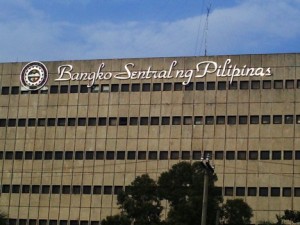BSP seen to slash SDA rates by 50 basis points
MANILA, Philippines—The Bangko Sentral ng Pilipinas is widely expected to slash rates on special deposit accounts (SDAs) by another 50 basis points during its monetary policy setting meeting on Thursday.
The BSP has so far slashed the rate on SDAs—the mechanism by which it borrows from the broader market—by 100 basis points so far this year to 2.5 percent. The market consensus is that another 50 basis point cut to 2 percent will be sanctioned on Thursday.
In a research note, HSBC economist Trinh Nguyen said this monetary easing would reflect “the central bank’s desire to lower costs as well as spur spending.”
“The P1.9-trillion deposited in the SDA facility weighs on the BSP’s balance sheet while not being channelled into more productive investment,” she said.
A benign headline inflation, helped by abundant food supply and slowing oil prices, was giving the BSP room to cut, she said. With headline inflation expected to hug the bottom of the BSP’s 3-5 percent target in the next six months, Nguyen said the central bank had space to “flex its muscles.”
Article continues after this advertisement“By slicing the SDA rate by another 50 basis points, the BSP hopes to provide a jolt to an economy that has long been plagued by weak investment. Whether the central bank will be successful in boosting investment for the country remains to be seen. For now, benign inflation and mixed growth indicators provide the impetus for the BSP to do what it can to keep domestic demand strong and costs low,” Nguyen said.
Article continues after this advertisementWhile the Philippines exceeded economic growth expectations by expanding by 6.6 percent in 2012, Nguyen said the BSP had struggled to achieve stable growth in the past. “Both the government and the central bank have signalled that they will take action to ensure that growth will stay strong this year while there is room to maneuver,” she said.
Nguyen said both domestic and external economic indicators indicated that growth for the remainder of the year would be heavily reliant on domestic demand. She noted the sharp export contraction in January and February, dragged down by weak electronics shipments. “The outlook is not rosy,” Nguyen said, pointing out that remittances, while still flowing into the country at great speed, were not enough to offset contracting exports. She added that while fiscal spending rose 12.4 percent year-to-date in February, in line with expectations, revenue collection was disappointing, rising by a mere 2.1 percent.
“With the government’s fiscal room for maneuver limited, the BSP is aiming to play its part to boost demand,” she said.
